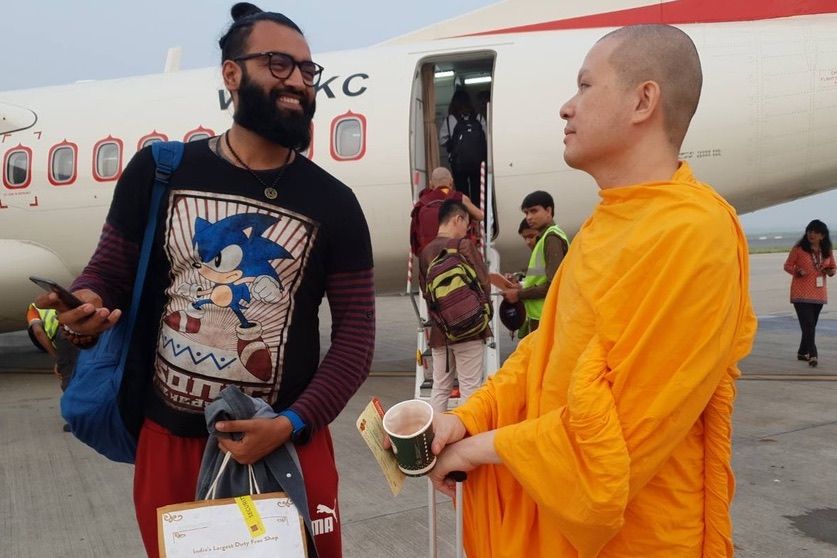
How to address a Thai Buddhist monk properly?
One question that I’ve got the most was ‘how to address a Thai Buddhist monk properly’.
There are three main schools in Buddhism:
Each of them has their own way to address monks, which sometimes also depend on local languages as well.
In case of Vajrayana, all monks has a prefix ‘Lama’. The meaning is similar to guru. Sometimes, there can be an additional prefix in front of the word Lama. For example, Dalai Lama (Dalai means ocean) usually refers to a successor in the lineage of carnations of Avalokiteśvara where Panchen Lama is the highest rank of Lama after Dalai Lama.
In case of Mahayana, it depends from country to country. In Vietnam, the title ‘Thich’ is literally translated as ‘monk’. In Japan, the word ‘Obousan’ is used to refer to a monk.
In Theravada, a monk usually receives a monastic name in Pali language after his ordination. They will permanently (or temporarily) discard their family name to demonstrate that now they belong to the Buddha’s family instead of their own. For example, my former name before the ordination is Paramai Supadulchai where my monastic is Dhanissaro. Since a monastic name can be used by many monks, a practical way is also to keep the first name. Thus, I shall be addressed as Phra Paramai Dhanissaro.
I prefer to use the monastic name wherever possible. The suffix ‘Bhikkhu’ is also used since it was the term that the Lord Buddha used to address monks during his lifetime. In my case the formal monastic name will be Dhanissaro Bhikkhu and this is what I prefer the most.
However, the Thai government does not recognize the monastic name system. When a Thai monk needs to get a passport, the first name and the last name are also there. But the prefix Phra, which in Thai means monk or literally translated as a noble one, is added in the passport. In my case the passport name will be Phra Paramai Supadulchai. This makes everyone think that my real name is Phra and I kind of like that because it means a noble one. However, it means all Thai monks’s names will be identical.
When people write a title of a monk in English they sometimes use the word ‘venerable’ before their names. A title ‘the most venerable’ often refers to a senior monk or an abbot of a temple. However, some people prefer to put use a title in a local language such as ‘phra’ or ‘ajarn’ (in Thai means ‘teacher’). Sometimes, people combine these two words together as Phra Ajarn, which means a teaching monk. If people are familiar with a monk, they sometimes use a more informal word ‘luang phi’ (brother monk), ‘luang por’ (father monk) or ‘luang pu’ (grand father monk) as well.
In my case, these are the possibilities:
- Dhanissaro Bhikkhu (the pure Pali version)
- Phra Paramai Dhanissaro (the formal Thai version)
- Phra Paramai Supadulchai (the passport name for booking tickets as well as getting VISAs)
- Phra John Paramai Dhanissaro
- Luang Phi John (the shortest and most casual informal version)
- Luang Phi John Paramai (the longer casual informal version)
- Venerable John Paramai Dhanissaro (the combination of English, Thai and Pali version)
This can be complicated in Thailand once a monk receives an honorable title from the king. Some titles are meant to be a prefix to their names. Some titles change the name completely. For example, the acting supreme patriarch, who during his first days of monkhood was addressed as Chuang Varapunyo Bhikkhu, should be address formally as Somdet Phra Maha Ratchamangalacharn. This is the rank that he receives as an honor of his dedication throughout the monk’s life from the king Rama IX of Thailand. Once a foreign newspaper addressed him as Mr. Chuang like an ordinary guy. That created criticism among Thai internet users. As a result, the newspaper needed to change from Mr. to Somdet.
I hope this post help clarify the myth of addressing monks, especially in Thailand.